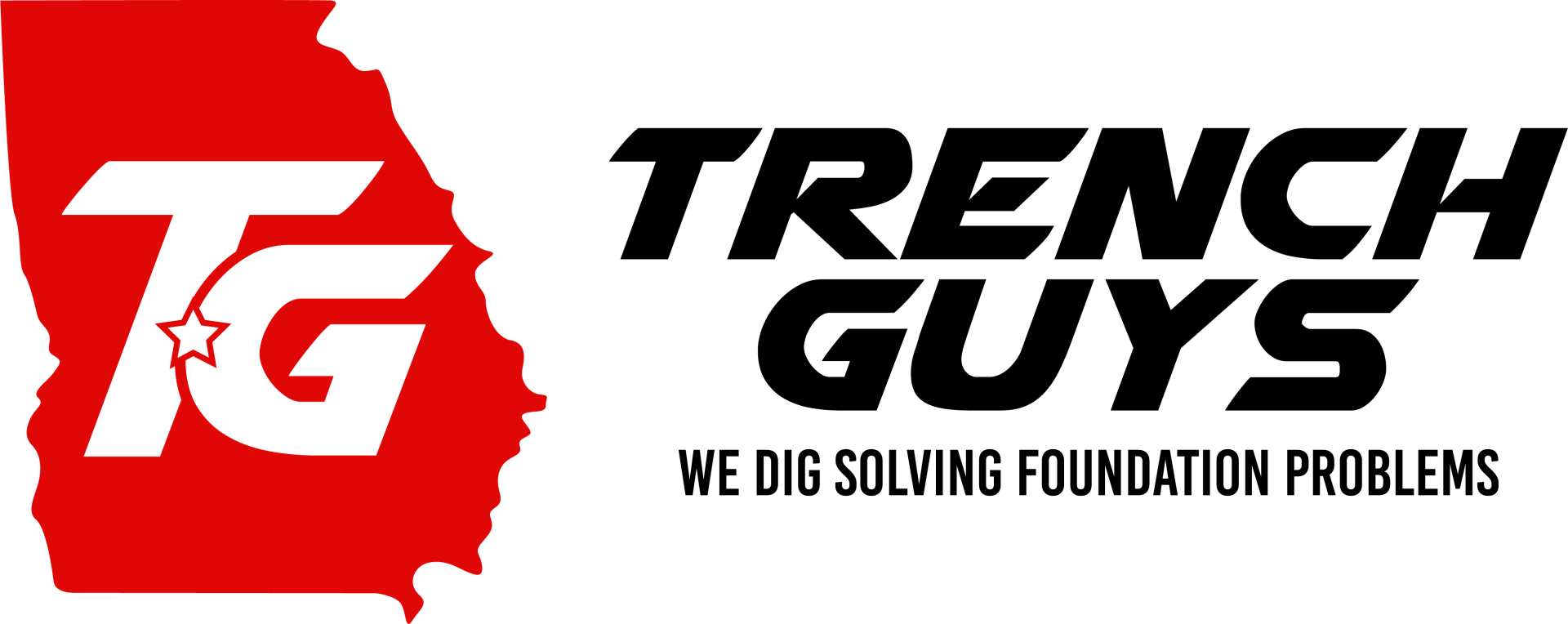NOW IS THE TIME TO...
Claim Your FREE Crawl Space Inspection!

Foundation Repair In Macon, GA
John Ryan: 478-236-6403
Schedule Your Free estimate!
No-Obligation, Free Inspections
No-Obligation Free Estimates
We Warranty All of Our Work
100% Satisfaction Guaranteed
The Complete Guide to Foundation Repair: How to Identify, Diagnose, and Fix Common Foundation Problems
Have you found that your flooring and walls are becoming uneven and cracked? These may indicate a concern with the structure's foundation. Instead of waiting until it's too late, read our comprehensive guide to learn how to spot, diagnose, and repair common foundation concerns. Read on to learn how to preserve the stability of your house's base.
Macon, GA
Basement Waterproofing

Types of Foundation Repair
When it comes to fixing a foundation, there are numerous options available depending on the problem. The following are examples of some of the more typical forms of foundation repair:
- Pier and Beam Foundation Repair: Fixing a pier and beam foundation is necessary if the structure has sunk or shifted. To do this, either new piers are set up or the current ones are shored up to better support the beams and stable the foundation.
- Slab Foundation Repair: Slab foundations are typically made of concrete and are used in areas where the soil is stable and does not shift easily. When a slab foundation settles or cracks, it can be repaired using a process called mud jacking or slab jacking, which involves injecting a mixture of concrete and soil beneath the foundation to raise and level it.
- Basement and Crawl Space Foundation Repair: Repairing the concrete or block foundation of a basement or crawl space. Most basement and crawl space foundations are constructed of poured concrete or cinder block. These foundations can be fixed by underpinning, wall anchors, or carbon fiber reinforcing if they settle or break.
- Helical Piers: When the soil around a building is too unstable to bear the weight of the structure, a deep foundation system called helical piers can be employed to stabilize and support the building. They are put to work on expansive clay, soft soils, or fill soils.
Foundation repair of any kind requires expert advice before proceeding. Professionals will know which foundation repair method is ideal for your home based on its current condition and budget.
Signs of Foundation Damage
Although foundation damage may be hard to spot, there are a few telltale red flags that something is wrong. When a foundation is damaged, you may notice any number of things.
- Foundation settling or shifting can be indicated by cracks in the walls or flooring; small hairline cracks may not be a cause for alarm, but bigger fissures, especially those broader at the top than at the bottom, can be.
- Sloping or uneven floors could be a clue that your home's foundation has settled or shifted.
- Doors or windows that are difficult to open and close may be a sign that the foundation has shifted, which is causing the home to be out of plumb.
- If walls or floors have become detached from the foundation or from one another, this could be an indication of the foundation settling or shifting.
- Walls that bow or lean may be an indication of soil pressure or water infiltration.
- Water seeping into your basement or crawl space could be a sign that the foundation isn't properly sealed or that there are cracks in the foundation.
If you see any of these, it's time to call in a pro to assess the damage to your foundation and provide you with advice on how to fix it. If you ignore cracks in your foundation, they may get worse, requiring more significant and expensive repairs down the road.
Macon, GA
Foundation Waterproofing

Causes of Foundation Damage
There are several factors that can cause foundation damage. Some of the most common causes include:
- Soil movement: The soil that surrounds your foundation is constantly shifting and changing. When the soil expands or contracts due to changes in moisture or temperature, it can cause your foundation to settle or shift.
- Poor drainage: Poor drainage can cause water to accumulate around your foundation, which can lead to soil expansion and contraction and ultimately foundation settling or shifting.
- Plumbing leaks: Plumbing leaks can cause water to accumulate in your crawl space or basement, which can lead to soil expansion and contraction, and ultimately foundation settling or shifting.
- Tree roots: Tree roots can grow into the soil surrounding your foundation, causing it to shift and settle.
- Natural disasters: Natural disasters such as earthquakes, floods, and landslides can cause significant damage to a foundation.
- Improper construction: Improper construction can cause issues such as settling or shifting, cracks, and other foundation problems.
- Aging: As the foundation ages, it may become less stable and more prone to damage.
It's important to note that the causes of foundation damage can vary depending on factors such as the location of the building and the type of foundation. A foundation repair professional can help you identify the specific cause of the damage and recommend the appropriate repair solution.
Cost of Foundation Repair
The cost of foundation repair can vary greatly depending on the type of damage and the method used for repair. Some common factors that can affect the cost include:
- The size and complexity of the repair: The larger and more complex the repair, the more it will cost.
- The type of foundation: Different types of foundations require different methods of repair, and some may be more expensive than others.
- The severity of the damage: The more severe the damage, the more extensive and expensive the repair will be.
- The cost of labor and materials: The cost of labor and materials can vary depending on the location and the specific repair method used.
- Professional fees: Professional fees such as inspection and consultation fees, permit fees, and engineering reports will add to the cost.
On average, foundation repair can cost anywhere from a few hundred dollars to tens of thousands of dollars, depending on the severity of the damage and the method used for repair. A simple repair such as a crack repair can cost around $500 to $1,000, while a more complex repair such as underpinning can cost $10,000 to $30,000 or more. It's important to get a written estimate from a professional foundation repair contractor before starting any work.
Macon, GA
Waterproofing Company

DIY Foundation Repair
While it may be possible to undertake some basic foundation repairs on your own, it is strongly recommended that you hire a professional. Repairing a foundation is a technical and demanding job that calls for experts with the right training, tools, and expertise.
DIY foundation repairs can be dangerous, so it's crucial to know what you're getting into. Repairing a building improperly can cause more problems, weaken it, and even be dangerous. Do-it-yourself foundation repairs are not only dangerous, but they can also invalidate a building's guarantee.
However, there are certain minor fixes that homeowners may tackle on their own, such as improving drainage around the foundation or sealing small gaps with concrete filler. While necessary, these fixes are more often seen as preventative maintenance than permanent remedies.
The best course of action if you suspect foundation damage is to hire a professional foundation repair contractor. They can identify the issue and advise you on the best way to fix it.
You should also hire an expert to fix your home's foundation if you intend to sell it. For reasons of quality and safety, and so that the warranty can be passed on to the next owner.
DIY foundation repairs may seem like a good idea at first, but they can lead to even bigger and more expensive issues down the road. Consulting with a competent foundation repair contractor is always a good idea to make sure the job is done right and properly.
Professional Foundation Repair
When it comes to foundation repair, it's important to hire a professional contractor who has the experience and expertise to properly diagnose and fix the problem. A professional foundation repair contractor will be able to:
- Conduct a thorough inspection of the foundation to determine the cause of the damage and recommend the appropriate repair solution.
- Use the latest techniques and equipment to repair the foundation, ensuring that the repair is done correctly and safely.
- Provide a written estimate for the repair and explain the repair process in detail.
- Obtain the necessary permits and comply with local building codes and regulations.
- Provide a warranty for their work, giving you peace of mind that the repair will be done correctly and any issues that may arise will be addressed in the future.
In need of foundation repair? Be sure to do your homework and hire a company with a solid reputation in the industry. To find out what kind of job to expect, it's important to check references and read reviews online. It's smart to collect at least three written quotes before settling on a choice.
It's also worth stressing that not all companies that offer foundation repair services are created equal. Some contractors may only be able to work on certain kinds of foundations due to their expertise or lack of specialized tools.
Make sure you verify that they are licensed, bonded, and insured before hiring them. You can rest easy knowing that your foundation is in good hands with the contractor and that you are covered in the event of any mishaps during the repair procedure if they have the proper licensing and insurance.
In conclusion, if you want to be sure that your foundation is fixed effectively and safely, you should choose a professional foundation repair contractor. They have the tools and knowledge to identify the issue and implement a solution, ensuring that your home base will be safe and sound for years to come.
Macon, GA
Waterproofing Basement Floor

Foundation Repair Materials
There are several different types of materials that can be used in foundation repair. The type of material used will depend on the type of foundation and the severity of the damage. Some common foundation repair materials include:
- Concrete: Concrete is a common material used in foundation repair. It can be used to fill cracks, stabilize foundation walls, and repair or replace damaged sections of the foundation.
- Steel: Steel is often used in foundation repair and as reinforcement. Carbon fiber and steel brackets can be used to stabilize bowing or leaning foundation walls.
- Polyurethane foam: Polyurethane foam is a material that can be injected into cracks to fill and seal them. It is often used as an alternative to concrete in foundation repair.
- Epoxy: Epoxy is a type of resin that can be used to fill and seal cracks in foundations. It is often used in conjunction with steel reinforcement to stabilize foundation walls.
- Helical Piers: Helical piers are made of steel and are used to support foundations in areas with soft or unstable soils. They are screwed into the ground to provide stable support for the foundation.
- Concrete Piers: Concrete piers are used to support foundations in areas with soft or unstable soils. They are poured into drilled holes and used to support the foundation.
It's worth noting that the materials utilized to fix a foundation can change based on factors like the area and the chosen manner of fixing it. If you hire a contractor to fix your foundation, they may advise you on what materials will work best.
A skilled foundation repair contractor will also be aware of the newest possibilities in terms of technology and materials.
In conclusion, it's crucial to think about the materials utilized in the repair of the foundation. Using high-quality materials helps guarantee a long life for the repaired foundation and guarantees that the work will be completed without incident.
Foundation Repair Techniques
There are several different techniques that can be used in foundation repair, depending on the type of foundation and the severity of the damage. Some common foundation repair techniques include:
- Mudjacking: Also known as slab jacking, this technique involves injecting a mixture of concrete and soil beneath a slab foundation to raise and level it.
- Underpinning: This technique involves installing new foundations or piers beneath the existing foundation to provide additional support and stability.
- Wall anchors: Wall anchors are used to stabilizing bowing or leaning foundation walls. They work by attaching to the foundation wall and pulling it back into place.
- Carbon fiber reinforcement: Carbon fiber reinforcement is a technique used to stabilize bowing or leaning foundation walls. It involves attaching carbon fiber straps to the foundation wall and tightening them to pull the wall back into place.
- Helical Piering: Helical piering is a technique used to support foundations in areas with soft or unstable soils. It involves screwing steel piers into the ground to provide stable support for the foundation.
- Concrete piering: Concrete piering is a technique used to support foundations in areas with soft or unstable soils. It involves drilling holes and filling them with concrete piers to support the foundation.
- Grouting: Grouting is a technique used to fill voids or stabilize soils around foundations. It involves injecting a mixture of grout (usually a mix of cement, water, and sand) into the soil, which hardens and provides additional support to the foundation.
It's important to note that the techniques used in foundation repair can vary depending on the location and the specific repair method used. A foundation repair professional will be able to recommend the best technique for your specific situation.
In conclusion, foundation repair techniques are a critical factor to consider. Choosing the right techniques can ensure that the repair is done correctly and safely, and that the foundation will be stable and secure for years to come.
Macon, GA
Foundation Sealing

Foundation Repair Maintenance
Foundation repair is a significant investment, and it's important to maintain the repair to ensure that it lasts for as long as possible. Some common ways to do foundation repairs include:
- Proper drainage: Make sure that water is directed away from the foundation. This can be done by adding gutters and downspouts, grading the soil around the foundation, and installing a sump pump in the basement or crawl space.
- Regular inspections: It's important to have regular inspections of the foundation to ensure that the repair is holding up. This can be done by a professional foundation repair contractor or a structural engineer.
- Maintenance of landscaping: Trees, shrubs, and other plants can cause damage to foundations by growing too close to them or by drying out the soil. Make sure to maintain the landscaping around the foundation to prevent this.
- Fixing leaks: Any leaks in the plumbing or roof should be fixed as soon as they are noticed. Leaks can cause water infiltration in the foundation, which can lead to further damage.
- Monitoring the humidity level: High humidity levels can cause mold and mildew to grow in the basement or crawl space. Make sure to monitor the humidity level and use a dehumidifier if needed.
- Keep an eye on the weather: Be aware of the weather conditions that could lead to foundation damage such as heavy rain, floods or earthquakes.
- Keep records: Keep records of any repairs made to the foundation, including the date and the contractor who did the work. This will help you keep track of the history of the foundation and will also help if you plan to sell the house in the future.
Keeping to these basic maintenance procedures will lengthen the life of your foundation repair and keep your house secure and stable for years to come. It's crucial to remember that even if the foundation is repaired, it may need to be fixed again in the future. To make sure the repair is done properly and safely, and that the foundation will remain strong and secure for years to come, it is always wise to seek the advice of a professional foundation repair contractor.
Frequently Asked Questions About FOUNDATION REPAIR
-
What are the common signs of foundation damage?
Common signs of foundation damage include: cracks in walls or floors, uneven floors, sticking doors or windows, wall or floor separation, bowing or leaning walls, and water infiltration.
-
What are some of the most common causes of foundation damage?
Common causes of foundation damage include soil movement, poor drainage, plumbing leaks, tree roots, natural disasters, improper construction, and aging.
-
How much does foundation repair typically cost?
The cost of foundation repair can vary greatly depending on the type of damage and the method used for repair. On average, foundation repair can cost anywhere from a few hundred dollars to tens of thousands of dollars.
-
What are some common foundation repair materials?
Common foundation repair materials include concrete, steel, polyurethane foam, epoxy, helical piers, and concrete piers.
-
What are some common foundation repair techniques?
Common foundation repair techniques include: mudjacking, underpinning, wall anchors, carbon fiber reinforcement, helical piering, concrete piering, and grouting.
-
How do I maintain a foundation repair?
Proper drainage, regular inspections, maintenance of landscaping, fixing leaks, monitoring the humidity level, keeping an eye on the weather, and keeping records.
-
Are there any regulations for foundation repair?
Yes, foundation repair is regulated by various local, state, and federal laws, including building codes, permits, professional licenses, engineering reports, warranty, insurance, and homeowner's association regulations.
-
What is mudjacking?
Mudjacking is a foundation repair technique that involves injecting a mixture of concrete and soil beneath a slab foundation to raise and level it.
-
What is underpinning?
Underpinning is a foundation repair technique that involves installing new foundations or piers beneath the existing foundation to provide additional support and stability.
-
What are wall anchors?
Wall anchors are used to stabilize bowing or leaning foundation walls. They work by attaching to the foundation wall and pulling it back into place.
Our Moisture Control Services
At Trench Guys, we are proud to offer Crawl Space Moisture Control Services to the residents of Macon, GA. Please take a moment and see all of our Crawlspace Moisture Control related services.
When it comes to crawl space moisture control, you can count on Trench Guys. So don't delay! Call us now at 478-236-6403 to schedule a FREE crawl space inspection and estimate!
Our Crawl Space Repair Services
At Trench Guys, we are proud to offer Crawl Space Repair Services services to the residents of Macon, GA. Please take a moment and see all of our Crawlspace Repair Services.
When it comes to crawl space moisture control, you can count on Trench Guys. So don't delay! Call us now at 478-236-6403 to schedule a FREE crawl space inspection and estimate!
About Our Crawlspace Services in Macon, GA
At Trench Guys, we are proud to offer expert crawl space services to homeowners and businesses in Macon, GA.
Our team of experienced technicians is dedicated to helping you maintain a healthy, comfortable living environment through professional crawl space encapsulation, waterproofing mold removal and foundation repairs.
01. Speak To One of Our Crawl Space Experts
First, contact our customer support team. Tell our friendly crawl space experts about your problem and what issues you're facing.
02. Schedule A Free Inspection & Estimate
Schedule a 100% free no-obligation crawl space inspection and if we find any issues to repair or improvements for you to consider, we will provide you with a free estimate for you to consider with zero pressure.
03. Restore Your Home & Your Families Health
If you decide you would like us to fix your crawlspace issues, we will schedule a date that works best for you and perform the work needed to restore your crawl space.
When it comes to a wet crawl space, fast response is crucial. So don't delay! Call us now at 478-236-6403 for immediate help!

Written by John Ryan
Founder of Trench Guys
John Ryan has been specializing in crawlspace and foundation repair for over 10 years. John has prior experience in residential construction all across the south east that prepared him for solving complex problems related to crawlspace moisture control and settling foundations, he is one of Middle Georgias top experts in foundation repairs. As the Founder of Trench Guys LLC he is the crawl space specialist that locals in Macon depend on to fix their crawl space problems right the first time.
Looking for a reliable and professional company to take care of your crawl space, basement and gutter needs? Look no further than Trench Guys! We have years of experience in the industry and can provide you with top-quality services at a competitive price. Contact us today to get started!
CONTACT INFORMATION
Phone: 478-236-6403
Email: Wedigmiddlega@gmail.com
Address: Macon, GA
Business Hours:
Mon-Fri: 6:00 AM - 5:00 PM
Sat-Sun: Closed
ADDITIONAL INFORMATION
Us Across The Web
Geo
Neighborhoods
Niche
All Rights Reserved | Trench Guys
Privacy Policy | Terms & Conditions | Sitemap


